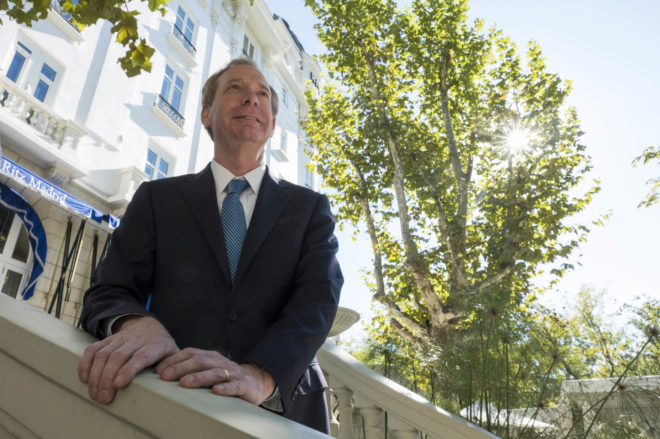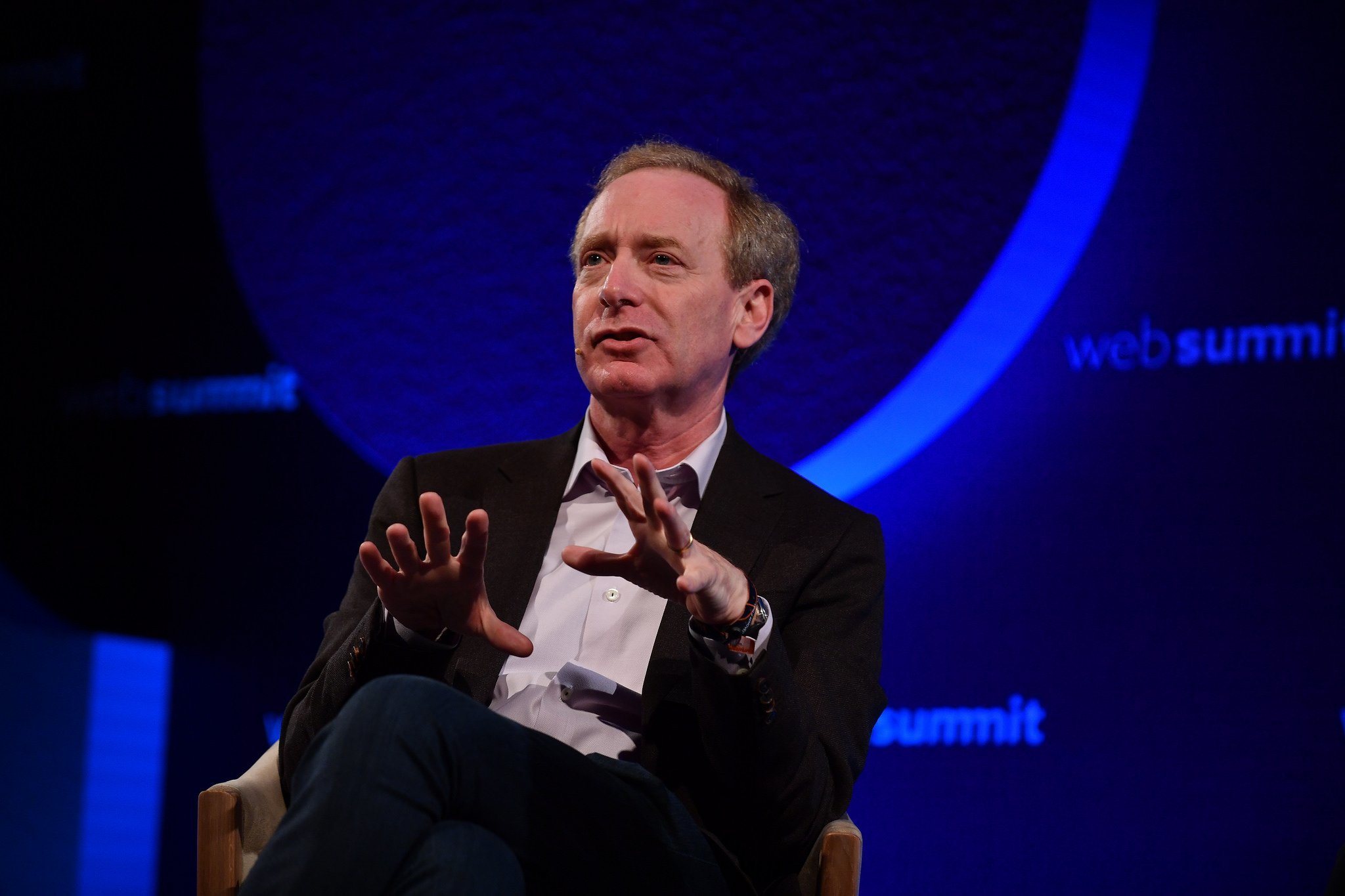Technological change affects us all, in many different ways.
From advancing businesses, to enriching our personal lives and much more, embracing technological innovation will bring with it countless benefits – and, as with all change, new challenges and questions are also posed when we enter new territory.
Last week, Microsoft’s President and Chief Legal Officer, Brad Smith, addressed the importance of technology during a tour across various countries in Europe, sharing how we can all work together to ensure a brighter future.
Preparing for the revolution
“It’s a historic time for the UK in the world”, Smith stated in his first speech at the annual CBI conference in London, which outlined the importance of the next technology-driven industrial revolution.
This isn’t the first time we have experienced technological change – comparing the two shots of the Flatiron building in New York City above shows the impact that innovation can have. Between the two photos, jobs such as blacksmithing declined with the innovation of the automobile, but so too, were new jobs created – technology provides new opportunities.
Stating that 90 percent of new jobs will require digital skills, Smith revealed that Microsoft is looking to create 30,000 apprenticeships in the UK between now and 2020 by working with its partners. He also encouraged businesses to consider technology in terms of what it can do for people, bringing new skills into schools to allow future demand for technological skills to be met.

Accessibility for all
While in Madrid, Smith renewed Microsoft’s commitment to making sure that technological accessibility and support for people with disabilities remains at the forefront of development.
Co-signing an agreement with Patricia Sanz, ONCE Vice-President for Social Policies and Equality and Pilar López, President of Microsoft Spain, the agreement works towards improving the employability of people with disabilities in Spain, as well as promoting universal accessibility and design across all facets of technology.
“Microsoft’s commitment is to empower and enable anyone to do more. We work with organizations around the world to create policies and programmes that promote digital inclusion and provide all people with better access to education, employment and public services”, says Pilar López, President of Microsoft Spain.
“A good example of this is the extension of our agreement with ONCE and its Foundation, which allows us to contribute in the access to technology, improving the education of people with disabilities and their insertion into the world of work, where more and more technological skills are needed.”
The importance of security
Speaking at the Web Summit in Lisbon, Portugal, Smith outlined the importance of ensuring that we are all protected with the latest, most sophisticated tools available, at all times – especially at a time where cyberattacks are becoming more and more frequent, with greater levels of sophistication.
With more and more data being stored thanks to smartphones, apps, wearables and more, security has never been as important an issue as it is now.
“There are huge responsibilities that come with having data, regarding privacy and human rights”, Smith stated at the summit. Companies like Microsoft, who store and secure vast amounts of data – both for itself and its customers, have the largest responsibility of all.
As data privacy looks set to be more tightly regulated than ever, thanks to the incoming GDPR act set to land next year, Microsoft is working to make sure that all of the regulations are met, to alleviate all data privacy and security concerns.
The need for a Digital Geneva Convention
“The tech sector plays a unique role as the internet’s first responders, and we therefore should commit ourselves to collective action that will make the internet a safer place, affirming a role as a neutral digital Switzerland that assists customers everywhere and retains the world’s trust.”
Smith ended his European tour by speaking at the United Nations in Geneva on the state of cybersecurity, the shared responsibility to protect people in times of cyberwarfare, and the need for a Digital Geneva Convention. His full speech can be viewed in full, above.






